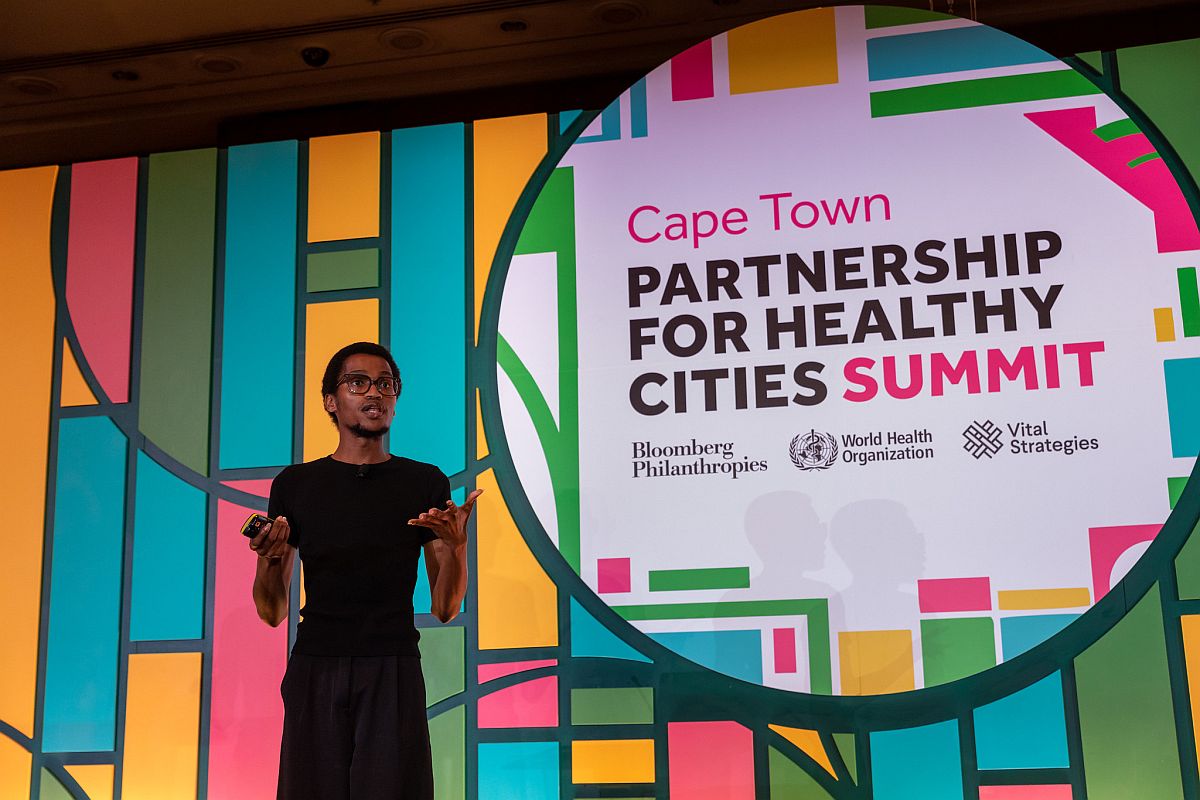CAPE TOWN, April 23 — Young people under the age of 30 in South Africa are demanding direct involvement in establishing new regulations for tobacco and e-cigarette control in the country, citing the relentless nature of the tobacco industry.
Lesego Mateme, the projects coordinator for the South African Tobacco-Free Youth Forum (SATFYF), said that since its inception in 2021, SATFYF has not only raised awareness about the harms of tobacco products on health, the economy, and the environment, but has also advocated for tobacco control policies to protect young people and South Africans at large.
One such policy is the Tobacco Products and Electronic Delivery Systems Control Bill 2022 (TC Bill).
“Through various campaigns such as door-to-door petitioning or directly calling policymakers to prioritise our health, SATFYF has been on the ground doing the work making sure this bill is passed.
“Last year, right here in the city of Cape Town, in collaboration with various advocates around Africa, we came together and marched to Parliament.
“The main purpose of the march was to celebrate the progress that the bill had made that far, but also to make sure that policymakers know that there’s still a long way to go and that they need to keep pushing,” Lesego said during a plenary session on ‘Youth Advocacy in Non-Communicable Diseases’ at the Partnership for Healthy Cities Summit 2024 here last Thursday (March 7).
“We also managed to get an interview with SABC, which is one of the biggest broadcasting news channels in South Africa. The main thing that was evident with this march is that young people are capable, and when given a platform, their collective voices can create magic.”
The proposed law aims to tighten regulations on the sale and advertising of traditional tobacco products like cigarettes by introducing plain packaging requirements.
This means that colourful, brand-specific packaging will be replaced by uniform packaging without logos, slogans, or distinctive colours. The only allowed information would be the brand and product name in a standard font and colour, along with health warnings.
The tobacco bill also targets electronic delivery systems, or vape, which remain unregulated in South Africa. It proposes restrictions on their sale and usage in both public and private spaces. If approved, indoor smoking, even in private spaces with non-smokers or children present, will be illegal.
Following its introduction in Parliament on December 9, 2022, the South African parliament’s Portfolio Committee on Health received a briefing from the Department of Health on the contents of the bill on May 31, 2023, although reactions were mixed.
The committee, chaired by Dr Kenneth Jacobs, a member of the ruling African National Congress party, heard that the most concerning problem is the impact the bill will have on the sale of illicit tobacco and the loss of jobs. Dr Jacobs, a medical doctor, said the bill is important for the health of all South Africans.
“Currently, the TC bill is in Parliament undergoing community-based parliamentary sharings so these are going from problems to problems and again, SATFYF has been at the forefront of these engagements, making sure that we support the bill as far as we possibly can and as boldly as we know how.
“We haven’t been doing this alone. In every problem that we’ve been going through, we’ve been pulling in young people because we understand – not only do we want this bill passed because that is the ultimate goal – but we understand and we respect the fact that there should never be nothing for us, without us,” Lesego said.
From South Africa To The Rest Of The World
SATFYF had the opportunity earlier this year to attend the tenth session of the Conference of the Parties (COP10) to the World Health Organization Framework Convention on Tobacco Control (WHO FCTC).
“It was so inspiring to be with young people and participate in everything – committee meetings and side events.
“The secretariat said this was the first time since the COP was established close to 20 years ago, that they had a youth delegation and it got us thinking that these things affect us but we are never really considered.
“Our experience of bringing local debates from South Africa to a global platform such as the COP have shown us that we may be young, but we also have valuable contributions to make at any level and to any conversation,” Lesego said.
Young People Not A Token
Lesego urged all 74 members of the healthy cities partnership to involve young people in their consultation and planning processes.
“I’m going to sound like a broken record, but I do invite you to please consider us, more than just consulting us, more than just making us tokens to jumpstart your programmes.
“Make sure that we are there and we are incorporated in your planning because we do have decision-making skills. We’re not only here to give inspiration but we want to drive this change that we want to see as well because we are going to be living with the decision that you’re going to be making now, in the years to come,” Lesego said.
“Young people are more than foot soldiers. We’re not just people who are on the ground. We are capable of occupying high level positions of high level. Not only are we smart, but we are also strategic. We are not only bold, but we are fearless.
“We are creative, while also being level-headed. I know that sometimes when you feel like we are too passionate, but I assure you that we are passionate enough, and I hope that is translated in my speech today.”








